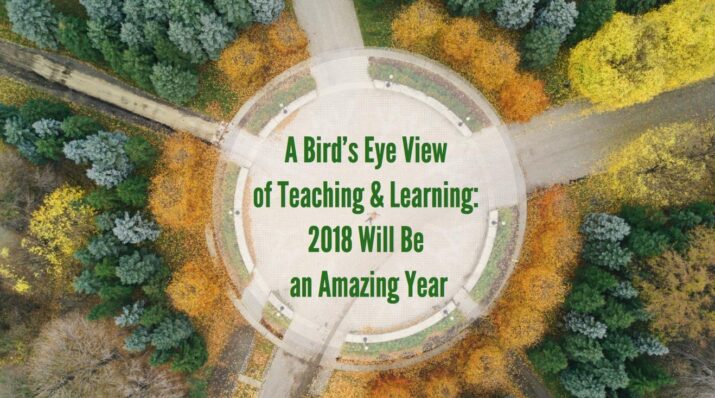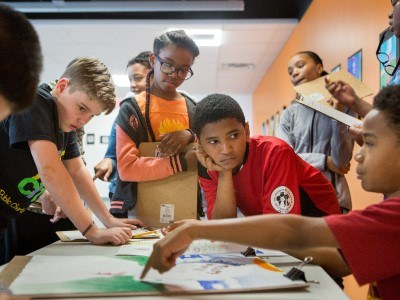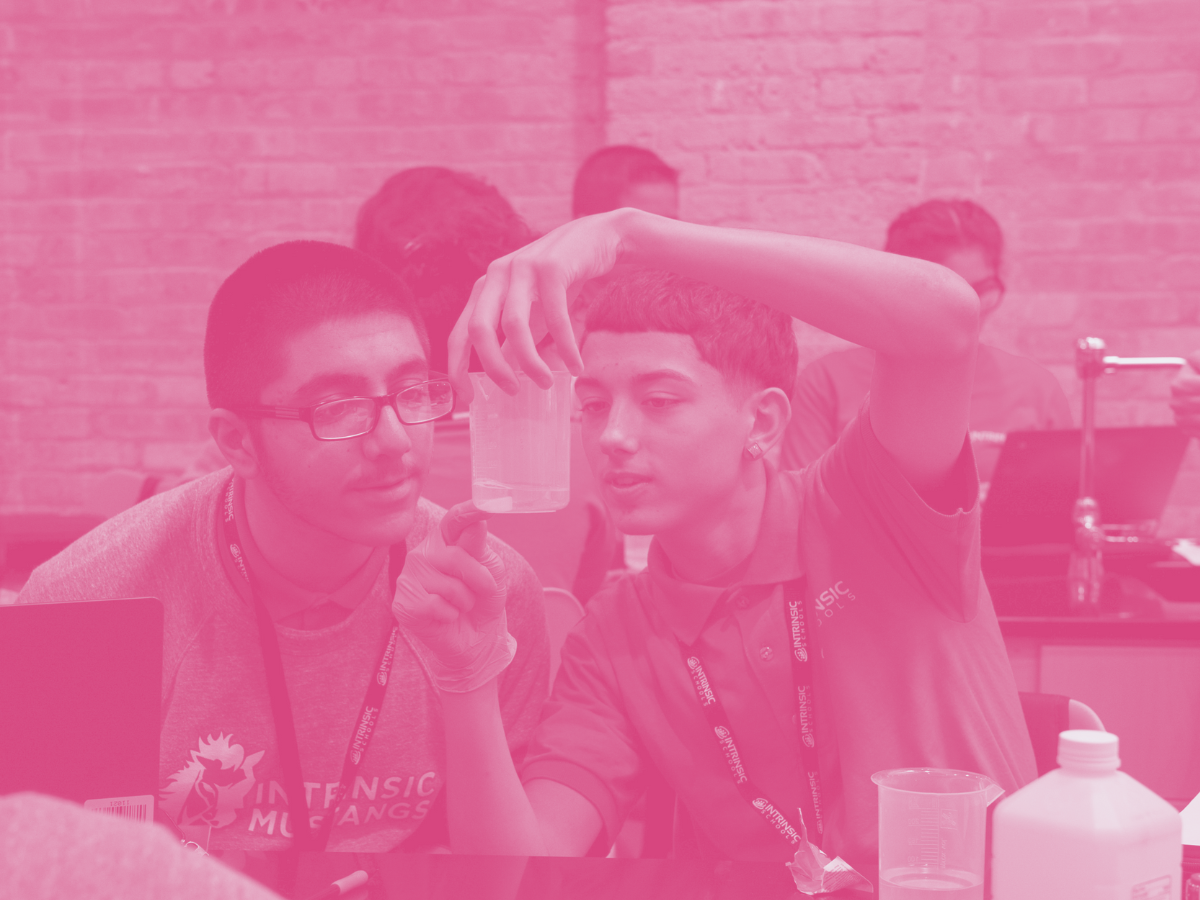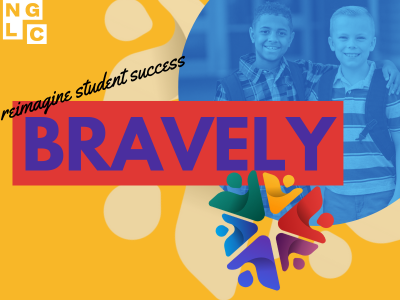Professional Learning
A Bird’s Eye View of Teaching & Learning: 2018 Will Be an Amazing Year
Topics

Educators are the lead learners in schools. If they are to enable powerful, authentic, deep learning among their students, they need to live that kind of learning and professional culture themselves. When everyone is part of that experiential through-line, that’s when next generation learning thrives.
When was the last time you asked somebody to make your work harder? At the EDUCAUSE Learning Initiative (ELI), we have the higher education teaching and learning community to thank for doing precisely that.
When was the last time you asked somebody to make your work harder? Certainly, until now, I’ve never done so, much less thank them for doing so. But we at the EDUCAUSE Learning Initiative (ELI) have the higher education teaching and learning community to thank for doing precisely that: making an aspect of our job very difficult indeed.
‘Whatever can he be talking about?’ you are probably asking. I’ll tell you.
As you may know, the ELI holds a conference each year, which we call the Annual Meeting. Our next event will be at the very end of January 2018. As with most conferences, we issue a call for proposals well in advance of the meeting date. We then collect submissions, have them evaluated by community members, and the proceed to fill the conference slots based on that community input. All pretty much standard operating procedure.
Except this year. And this is where things got harder.
For a start, we received a record number of proposals: a good 12% more than our previous record. If you’ve never made selections for a conference program before, you might say, ‘that’s great, there’s more to choose from!’ And that’s true, as far as it goes. But, in addition to the increased quantity, the quality of the proposals this year is very high indeed. My partner in crime, the ELI associate director Veronica Diaz, and I agree that this is, overall, the highest quality of submissions we’ve ever seen. We’ve read each and every proposal, and can attest that the work that the higher ed community is doing in the domain of teaching and learning is very impressive.
So this is the issue: with so much quality present within an impressively large proposal pool, the selection process becomes extremely challenging. In a word, harder.
For example, it is clear that, in terms of emerging technology, the teaching and learning community continues to press ahead in exploration for technologies that will enable more effective learning environments. It’s clear that there is renewed interest in what we might call ‘3D technology’ and all its variations (virtual, augmented, mixed, and immersive reality). Improvements in the technology, such as new mobile options, as well as declining costs have clearly contributed to the renewed interest. The 3D technology proposals covered a wide variety of topics, such as virtual reality for geosciences lab exercises, fostering emotional connection and empathy through immersive experiences, as well as documenting an emerging discussion about privacy, ethics and cultural sensitivity issues.
Right on its heels is another emergent technology: AI and robotics. Though not nearly as ‘evenly distributed’ as 3D technology, it’s clear that AI and robotics are gaining momentum. Back in July 2016, our issue of 7 Things covered the topic of robot writers and their potential to accelerate the development of open-source textbooks. Fast forward to 2017: in the current proposal pool, we’ve read about deployment of AI for the detection of learners’ emotional states as a variety of learner feedback (sentiment analysis), as well as for intelligent tutoring.
The quality of the community’s work was evident in all of the thematic tracks, not just those dealing with avant-garde technology. Whether the topic was online and blended learning, analytics, learning environment, faculty development, or what works, the quality of the proposals described was very high indeed. Having an aggregate view of what’s happening across such a broad spectrum of the field is a unique perspective. We couldn’t let this year’s submission process conclude without us sharing our acknowledgement of and gratitude for the tremendous amount of innovation that you’re accomplishing.
From where I sit, this is all excellent and inspiring work. But it made the selection process very challenging, leading Veronica and I to wish that our capacity was at least twice as big as it is. To conclude, as odd it may sound, I’d say: keep up the great work and please continue to make our job even harder next year!




